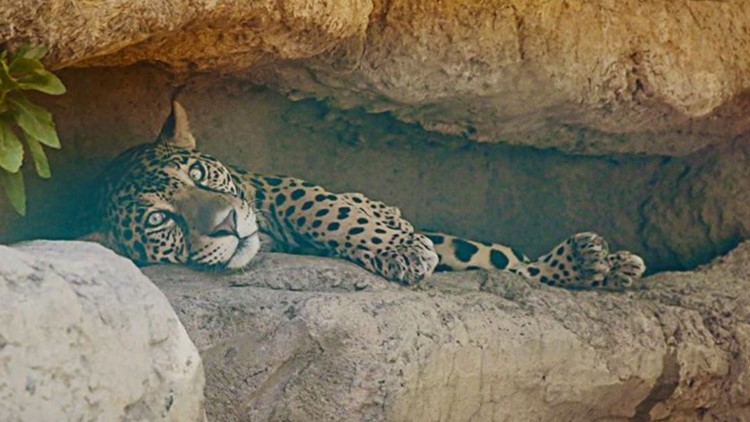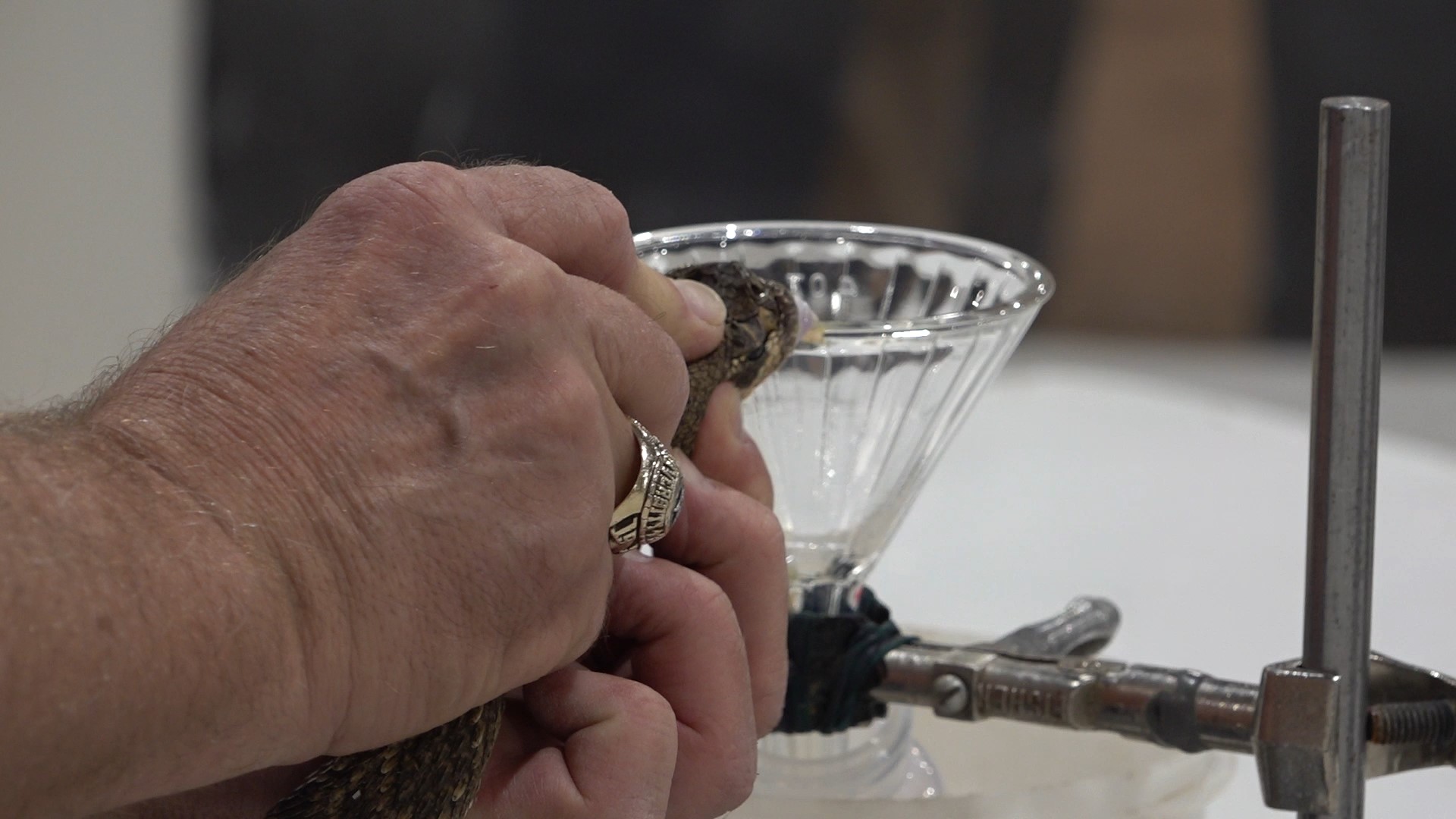ABILENE, Texas — The Abilene Zoo announced Thursday that Estrella, its 4-year-old female jaguar, has died.
Estrella was diagnosed with chronic myeloid leukemia (CML), a rare form of cancer, in October, after routine blood work showed high white blood cell counts.
She was admitted into veterinary hospice care immediately following her diagnosis, while Abilene Zoo veterinarian Dr. Stephanie Carle worked with human and veterinary leukemia experts across the United States to identify treatment options for her.
Unfortunately, a release from the zoo said, Estrella’s condition did not improve with any of the treatment options available.
“We are honored that the human and veterinary communities came together for a One Health approach to try to help this beautiful animal,” Carle said in the release.
“We are devastated to lose such an amazing member of our family here at the Abilene Zoo,” Abilene Zoo General Curator Denise Ibarra said. “We hope that her life is remembered and the community will look for ways they can help save wildlife across the globe.”
Estrella was born May 11, 2015, at the Fort Worth Zoo and brought to Abilene's zoo Feb. 23, 2016.
The release said, "Estrella was curious, smart, and could often be found ‘playing’ with children and visitors of all ages at her habitat’s large glass wall. She was extremely fond of the nooks and crannies found in her exhibit rock ledges and would enjoy long afternoon naps in the shade they provided. The loss of Estrella has left the staff with a deep sense of gratitude for the hard work they do every day to educate the public on the importance of conservation and saving wildlife."
"Estrella was a participant in the Association of Zoos and Aquariums (AZA) Jaguar Species Survival Program (SSP) and was an ambassador for her species. Jaguars face a declining population due to deforestation and land loss in their natural habitats of North, Central, and South America. Their presence in accredited zoos provides a connection for visitors, and an opportunity to learn how they can make a difference in saving the jaguar and other animals from extinction."



